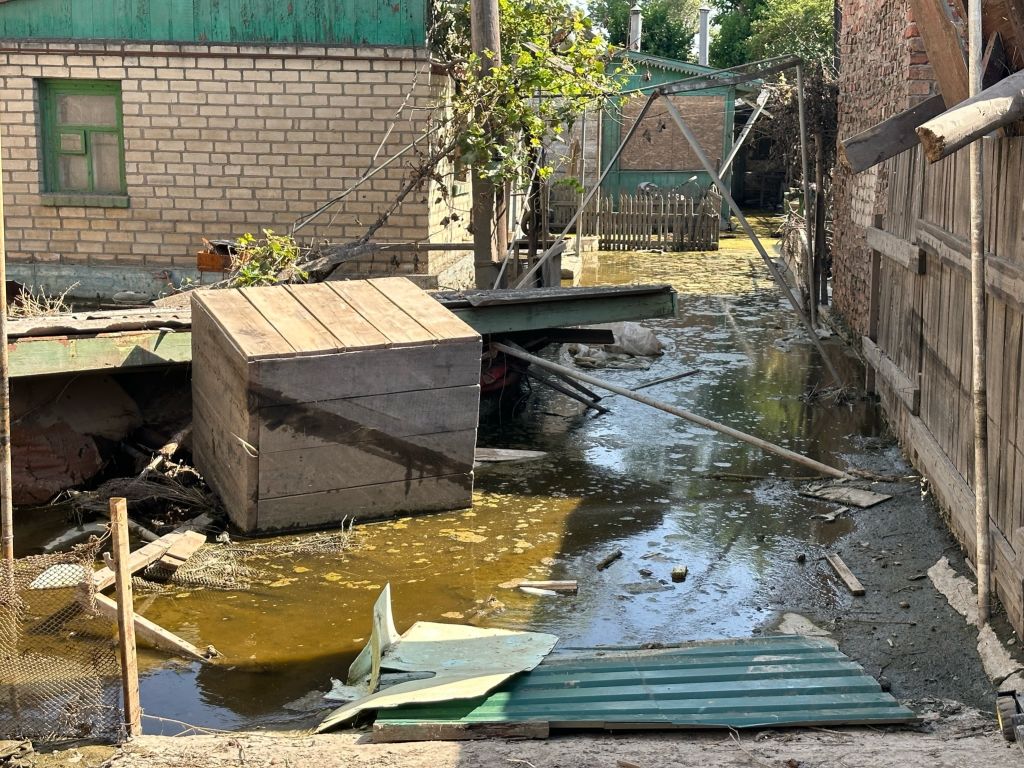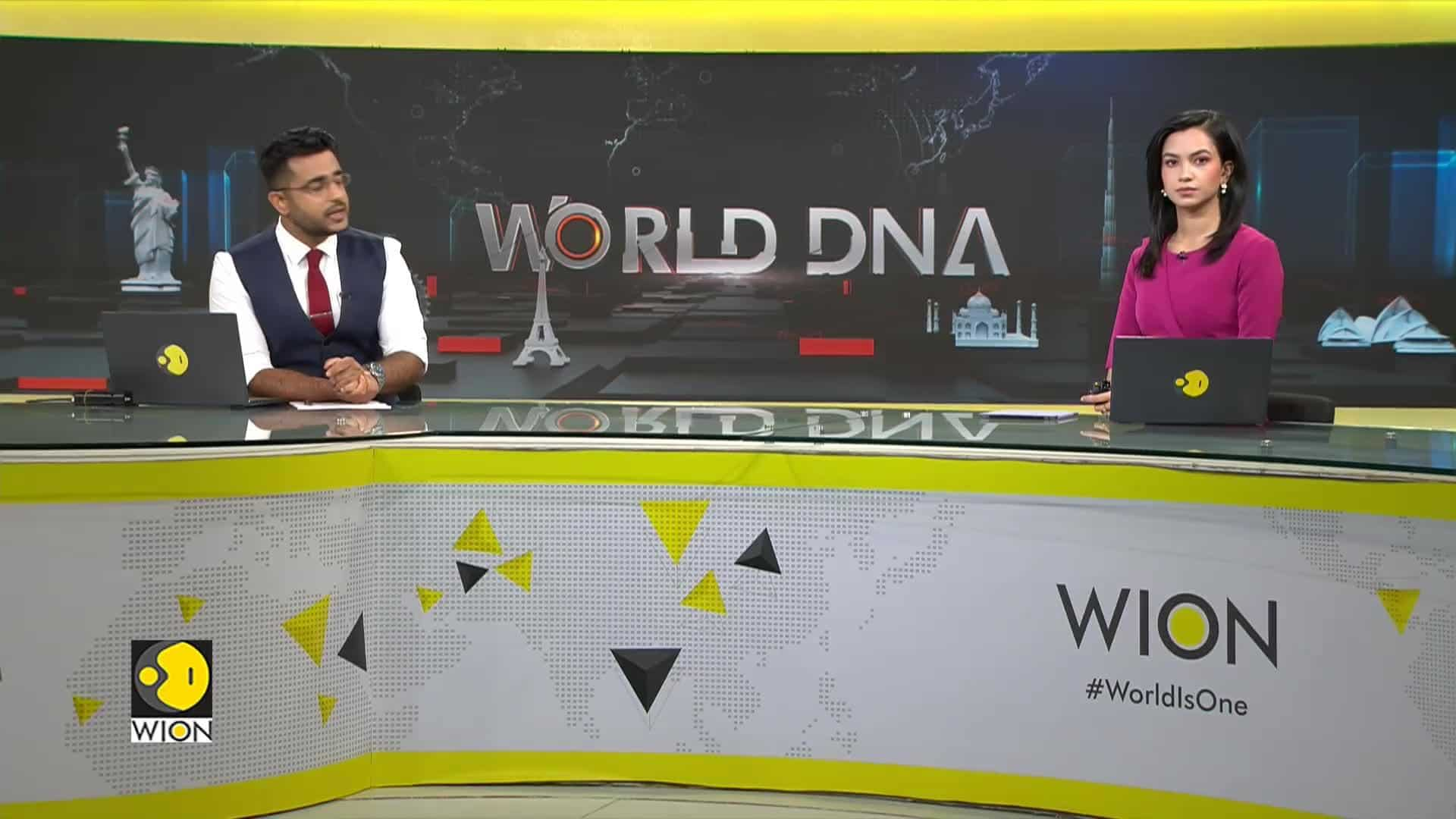Beyond the Black Sea Grain Initiative: Combating Food Insecurity Amid the Russia-Ukraine War

Russia’s invasion of Ukraine in 2022 has created a prolonged humanitarian crisis and has impacted the global food supply. Known as the world’s breadbasket, Ukraine was responsible for 46% of global sunflower oil exports, 12% of global corn exports, and 9% of global wheat exportss, providing the majority of imported grains to many countries in Africa and the Middle East.
Over a year into the war, pernicious threats are bearing on the global food supply, the most pronounced of which is the damage to Ukraine’s water management and irrigation systems. On June 6, the Kakhovka dam and electric plant in southern Ukraine was destroyed, jeopardizing the water supply of 700,000 people and flooding tens of thousands of hectares in one of Ukraine’s most agriculturally intensive regions. Ukraine’s agricultural ministry has warned that the dam’s destruction could turn at least 500,000 hectares of land into “deserts,” and the U.N. said the attack will result in surging food prices around the world. Prior to the breaching of the Kakhovka dam, other Ukrainian dams and reservoirs have come under attack, including in Kryvyi Rih, Kremenchuk, and Dnipro. According to Ukraine, Russian forces also destroyed a dam on the Mokri Yaly river. in June 2023. These impacts will continue for years, demolishing agricultural areas where Ukrainian farmers grow tomatoes, eggplants, cucumbers, and a variety of other crops.

U.S. and U.N. diplomats can prevent further damage to the region’s interconnected water systems by using a similar strategy to the Black Sea Grain Initiative, which built on mutual interest and shared benefits to stabilize food prices. Water mediation and protection mechanisms that apply to Ukrainian, Russian, and disputed or occupied regions can help entice all parties to compliance.
Food Production and the War
Ukraine is a major exporter of sunflower, maize, wheat, and barley. In the early days of the war, grain exports ground to a halt. Russian naval vessels blockaded Ukraine’s ports following its invasion in February 2022, preventing about 20 million tons of grain from reaching market. Similarly, Western sanctions against Russia made it much more difficult to bring Russian grain supplies to market.
This led to rampant food price inflation in Ukraine and created grain shortages in some of the world’s most vulnerable areas. The U.N. Food and Agriculture Organization’s food price index increased 20.7% from February 2021 to 2022. Both diplomats and human rights advocates placed intense pressure on Russia and Ukraine to negotiate a deal to enable grain shipments to flow freely.
But it was difficult to get Russia and Ukraine to agree on a framework to work together. Prior to the invasion, the Minsk Protocols – a series of agreements that sought to end fighting between Ukraine and pro-Russian separatists in Eastern Ukraine – were the main framework for mediating the conflict, but they lacked a clear purpose that was uniformly accepted by all participants. Ukraine interpreted them as a means to reintegrate the Donbas region, while the Kremlin interpreted them as a means to undermine Kyiv’s integration process with the West. There was no consensus on the sequencing of implementation, making it highly vulnerable to political manipulation and nullifying the technical components of the deal, such as the observation of a cease-fire and withdrawal of weaponry from the front lines. Furthermore, Moscow failed to see France and Germany as objective mediators, curbing its incentive to implement the agreement.
The Black Sea Grain Initiative
Even with this previous failure, both Ukraine and Russia had an incentive to reach an agreement on grain supplies amid the broader military conflict. Russia and Ukraine collectively account for 18 percent of global grain exports, providing the majority of imported grains to many countries in Africa and the Middle East. However, Russia’s military blockade of Ukraine’s Black Sea ports and Western sanctions against Russia made it much more difficult for both countries to bring their grain supplies to market. As a result, both Ukraine and Russia had an incentive to reach an agreement on grain supplies even as the broader military conflict endured. This paved the way for Turkey and the U.N. to mediate, with each focusing on their respective area of strength: Turkey on mediation and the U.N. on implementation.
Starting in March 2022 and accelerating in late June and early July, Turkey led shuttle diplomacy between Russia and Ukraine. Its position as the only NATO member to not pass sanctions against Russia facilitated its mediation between both sides. In addition, Turkey’s strategic location on the Black Sea and its points of entry from the Bosporus to the Mediterranean Sea made it crucial from a logistical perspective, as any shipments transiting the Black Sea must pass through Turkish-held straits to reach global markets. As a mediator, Turkey had sufficient leverage and strong working relationships with Russia and Ukraine, with an ability to apply sufficient carrots and sticks to both sides as necessary. Further, both sides recognized Turkey’s primary interest in guaranteeing the implementation of the deal rather than benefiting one specific party over another.

Meanwhile, the U.N.’s International Maritime Organization, which is responsible for regulating shipping, utilized legal mechanisms based on civilian merchant shipping laws that regulated maritime traffic. The U.N.’s role lent multilateral legitimacy to the agreement, particularly as the Russia-Ukraine conflict has created grain problems globally.
Russia and Ukraine signed the Black Sea Grain Initiative on July 27, 2022. Subsequently, the Joint Coordination Center (JCC), an Istanbul-based body consisting of Turkey, the U.N., Russia, and Ukraine overseeing the inspection of grain shipments and the implementation of the Black Sea Grain Initiative, was set up with two separate task forces. One was led by the U.N. Office for the Coordination of Humanitarian Affairs and focused on facilitating Ukraine’s grain exports, and the other was led by the U.N. Conference on Trade and Development and facilitated Russia’s grain and fertilizer exports. These two task forces were brought under one umbrella, enabling Ukraine and Russia to unlock grain shipments through the Black Sea without having to form a direct bilateral agreement, which would be a political impossibility in the current phase of the war. Turkey provided the facilities and logistics to oversee the deal.
Results
From the beginning, there was a specific purpose and goal among all the parties involved in the negotiations: to unlock grain supplies and bring them to global markets. As a result of the Black Sea Grain Initiative, Ukraine has been able to export more than 31 million tons of mostly corn and wheat. For reference, Ukraine was projected to produce 42 million tons of corn and 24 million tons of wheat in 2022. The deal had clear benefits for all the parties involved, it did not come at the direct expense of anyone, and it required the cooperation of all parties or else it could not be implemented. The Black Sea Grain initiative has been extended three times, most recently until July 17.
At the same time, the grain deal itself has faced challenges and complications. After the agreement was struck, Russia continued attacks against Ukraine, including rocket strikes against Ukrainian Black Sea port facilities less than 24 hours after the deal was reached. These attacks did not stop the initiative, given the clear benefits for both sides in maintaining the grain agreement, but as long as fighting remains active, any agreement involving supply export corridors is vulnerable to being undermined or scuttled completely in the event of a significant escalation in fighting.
Russian activities in the Black Sea have also served to complicate its standing as a pragmatic and cooperative party to the grain initiative. In addition to the grain shipments officially overseen by the JCC, there is evidence that Russia unilaterally ships grain it has plundered from newly seized territories in Ukraine, and Moscow has also used the Black Sea to ship weapons supplies to and from Syria via commercial vessels. Such activities are clearly counter to the spirit of the Black Sea Grain Initiative but fall outside of its legal and technical parameters. Russia President Vladimir Putin has recently criticized the grain initiative for not delivering enough supplies to developing countries, even floating its renegotiation.
Potential for Expansion
As Ukraine’s most recent counter-offensive and Russia’s ongoing attacks against the country show, Both Ukrainian and Russian forces are still attempting to gain an advantage on the battlefield, with neither showing that their forces are exhausted to the point of making a significant diplomatic compromise or concessions. These developments indicate that any potential for further agreements related to the Russia-Ukraine conflict are intimately linked to the political and security situation on the ground. Nevertheless, the Black Sea Grain Initiative can provide the foundation for other deals to take place related to the Russia-Ukraine conflict and beyond.
Already, Ukrainian officials have floated the idea of leveraging the grain agreement to unlock other exports through the Black Sea, such as metals. The U.N. is also pushing to reopen a pipeline that transports Russian ammonia (a key ingredient in fertilizer) through Ukraine, which Moscow is in turn linking to the extension of the grain deal. At a higher level, Turkey is aiming to use its role as mediator to forge a broader cease-fire agreement.
These efforts face several obstacles. Given that the Black Sea Grain initiative is legally and logistically geared toward grain supplies, the expansion to other goods like metals would need to be negotiated separately. This expansion would require substantial time and a conducive political climate, which may be more difficult now than at the start of the war, as Ukraine’s position has been strengthened due to Western/NATO support and gains made on the battlefield. As a result, Turkey’s goal of a cease-fire agreement is likely to prove challenging.
Looking Beyond the Black Sea Grain Initiative
Addressing access to the Black Sea shipping lanes is important, but the war is having more pernicious and long-term effects on the global food supply through access to clean water and energy, which enable farmers to bring their crops to market. Ukraine has extensive and critical water infrastructure in its eastern and southern regions, which are areas of intensive agricultural production. The production of grain and sunflower oil in Ukraine depends on complex networks of irrigation channels. These agricultural regions are also home to major industrial activities including metallurgy, coal mining, and chemical production. Also linked to Ukraine’s water infrastructure is its energy sector; prior to the Russian invasion, up to 10% of Ukraine’s energy needs came from hydroelectric power.

The recently-destroyed Kakhovka dam is similarly part of the Kakhovka hydroelectric power plant. Bridging the Dnipro River, the reservoir held about 18 cubic kilometers (4.3 cubic miles) of water. According to a Ukrainian military spokesperson, Russia’s aim in blowing up the dam was to prevent Ukrainian troops from crossing the Dnipro River.
Ukraine’s environment, communities, and industries that support the global food supply are grappling with the impacts of the war, including the most recent dam attack, which will impact about 80 communities with flooding. Damage to wastewater treatment plants, irrigation systems, and pumping stations is increasingly threatening Ukraine’s ability to sustain its population and bring grain to market. These water management systems are under threat on several fronts, ranging from pollution to structural damage. For example, troops have often discarded their ammunition and weaponry in Ukraine’s rivers and irrigation channels. These materials release heavy metals and toxic explosive compounds during their decomposition, which can remain in irrigation channels and water systems for decades. In the southern region of Ukraine, where military action has intensified, low-quality irrigation will likely affect food production.
Because Ukraine is highly industrialized, the disruption of industrial infrastructure will lead to widespread environmental consequences. Ukraine’s water infrastructure is also linked to its energy sector, with large reservoirs along the Dnieper River serving to cool nuclear power plants. Disruptions to the Dnieper, including the risk of breaching its dams, could result in the release of radioactive material, including harmful sediments produced during the Chernobyl disaster of 1986. These disruptions to Ukraine’s interconnected energy and water systems place global food security under further threat from the high cost of electricity and fertilizers, which include ammonia from natural gas. Since June 2022, several Ukrainian industrial facilities have been damaged or destroyed including the ammonia producer Azot.
As water flows across borders, the environmental implications of the war in Ukraine will grow to further impact the globe’s food supply. Almost all water from Ukrainian rivers flows to the Black and Azov seas. Port infrastructure along these waterways in Mykolaiv, Odessa, and Mariupol have already come under attack. On a macro level, the environmental results of the war will elevate the impacts of climate change, placing pressure on existing supply chains for food.
Recommendations
The world’s food supply chains are still contending with an energy crisis, inflation, and climate change, which are worsening amid Russia’s invasion of Ukraine. The war has already reduced agricultural production in Ukraine, impacting some of the world’s poorest countries. U.S. policymakers and diplomats can stem further inflation and stabilize these interrelated problems by focusing on the agriculture sector.
Initiatives to stabilize the world’s food supply should tie into a larger climate resilience transition strategy. U.S. policymakers can support the interconnected goals of food security and energy sustainability through the following recommendations.
Expand the Black Sea Grain Initiative
Diplomats should use the framework of the Black Sea Grain Initiative to reframe the tensions between Russia and Ukraine around a superordinate goal: stabilizing food supply chains. The 1977 Protocols to the Geneva Convention provided a set of international rules that aim to protect the environment and civilian water infrastructure during armed conflicts. The protocol imposes constraints on international armed conflicts with the aim of protecting civilians by prohibiting attacks against civilians, civilian objects, objects indispensable to the survival of the civilian population, cultural objects and places of worship, installations containing dangerous forces, and the natural environment.
Civilian water infrastructure, agricultural areas, and irrigation systems are all indispensable to civilian survival and therefore merit heightened protection. The U.N. Security Council also adopted a resolution on April 27, 2021, obliging combatants to protect civilian infrastructure, including water facilities. The resolution condemned attacks against civilians or civilian objects that deprived civilians of objects indispensable to their survival, including water and sanitation systems.
Despite these international resolutions and conventions, water systems and technicians have come under attack during the war. Since 2014, at least 35 water engineers have been killed or injured in Donetsk and Luhansk. In addition, the war is inflicting damage on the region’s interconnected water and irrigation systems, including the recent destruction of the Kakhovka dam.
To minimize these threats to the global food supply, diplomats should use the framework of the Black Sea Grain Initiative to develop plans to protect agricultural systems, with a focus on water, pollution, and irrigation.
U.S. diplomats can promote Russian involvement and compliance by focusing initiatives on the preservation of water systems in both Russian and Ukrainian territory, including Russian-occupied regions. This strategy aligns with both political and environmental realities, particularly as the region’s water networks are highly industrialized and interconnected. By facilitating or supporting water mediation mechanisms between Ukraine and Russia, U.S. diplomats or U.N. officials could protect water systems even in contentious areas like Crimea, where Ukrainian dams have previously cut off significant portions of the water supply and damaged the agriculture industry.
The United Nations should also increase environmental monitoring, including through remote sensing data for areas that are inaccessible or unsafe for researchers. This research can monitor the spread of pollutants and forecast the quality of water for drinking and irrigation. Diplomats should also draw on the Security Council’s 2021 resolution and the Geneva Convention to protect civilian and agricultural water systems, recognizing that these initiatives serve the mutual interests of Russia, Ukraine, and the world. As for international mediation, Turkey – or other, non-aligned states that have sustained relations with both Ukraine and Russia – can play an important diplomatic role alongside the U.N.
Diversify Agricultural Imports
The European Union should adopt policies both for the short term and the long term to lessen its dependence on Russian and Ukrainian grain, energy, and fertilizer. It is more important than ever before to fortify Europe’s agricultural sector by lessening its reliance on energy imports, feed imports, and imports of products that require a high energy input. This is especially important for the resilience and sustainability of the food systems in Europe. A robust global and bilateral trade strategy is necessary for achieving resilience, as this allows for the diversification of market outlets and import sources.
The EU should strengthen its climate and energy diplomacy through the implementation of its external energy strategy. To combat the issues of soaring prices for fossil fuels and fertilizers that are dependent on fossil fuels, Europe requires a significant expansion of electricity generation that is both clean and based on renewable resources.
Investment in research and development and energy partnerships are needed for the development of artificial fertilizers, including green ammonia produced in a renewable and carbon-free manner. The EU should also increase the penetration of low-carbon energy systems for clean energy transition. For example, green ammonia can be produced locally using green hydrogen from water electrolyzers powered by renewable energy systems and nitrogen separated from air. New technologies will both support food stability and climate change resilience.
Conclusion
Regardless of how Russia’s war in Ukraine plays out, the broader framework of the Black Sea Grain Initiative offers important lessons for any attempts to steer the conflict toward a resolution. The fact that such an initiative has been reached and implemented for a prolonged period amid an ongoing war is a testament to two fundamental features of the deal: that it is technical and focuses on areas of mutual interest.
These same features can be applied to further enhancing food security and strengthening water systems, while mitigating against the most disruptive elements of Russia’s war and Ukraine. Issues like pollution, irrigation, and environmental degradation cut across borders, impacting both countries and beyond, and the Black Sea Grain Initiative has shown that collaboration toward shared challenges is possible even among warring parties.
Diplomats and policymakers have witnessed the importance of stabilizing food supply chains around the world. With the summer months coming up and climate change intensifying, food security will be even more important. As the attack on the Kakhovka dam demonstrated, diplomats overlook irrigation systems and the agricultural sector at the world’s peril. Although the Black Sea Grain initiative remains the only major agreement between both sides, U.S. diplomats can draw on shared interests by demonstrating benefits to Russia and Ukraine’s water supply.
Zoe Robbin is currently a non-resident fellow at New Lines, researching the nexus of water and diplomacy. Previously, she was a Fulbright research fellow in Jordan where she focused on climate change, migration, and public policy. She has written for Foreign Policy, Al Jazeera, and New Lines Magazine among other outlets. She also co-leads the Diplomacy working group of Foreign Policy for America’s NextGen network and is a Senior Fellow with Humanity in Action.
Eugene Chausovsky is the Senior Director for Analytical Development and Training at New Lines. He oversees the institute’s publication and content production process, manages institutional training efforts, and guides the development of analytical products. He previously served as Senior Eurasia Analyst at the geopolitical intelligence firm Stratfor for more than 10 years. His analytical work has focused on political, economic and security issues pertaining to Russia, Eurasia, and China, as well as global connectivity issues related to energy and climate change.
The views expressed in this article are those of the author and not an official policy or position of the New Lines Institute.














